Audio:
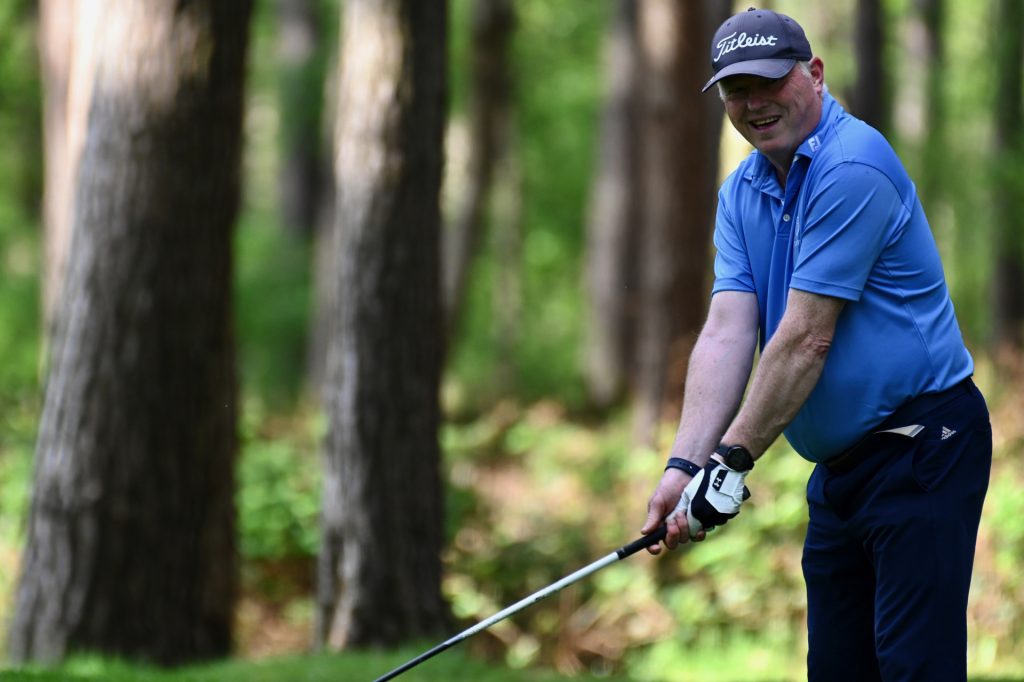
Tackling difficult equations in the science laboratory, or tackling, crossing the ball and scoring goals, it was always a tough decision for Ian Jones.
Ian travelled up to Newcastle University from his home in the south in 1985, with his football boots in his bag, along with school Advanced Level certificates in Maths, Physics and Chemistry. It was hugely exciting to prepare to study Chemical Engineering in this northern English city famous for its love of football.
Today, he concedes he spent too much time on the football pitch and not enough in the science lab. Equally, if he’d worked even harder in front of goal, his time playing for British Universities and semi-professionally in clubs around London might have led to even greater glory in front of the fans on the terraces.
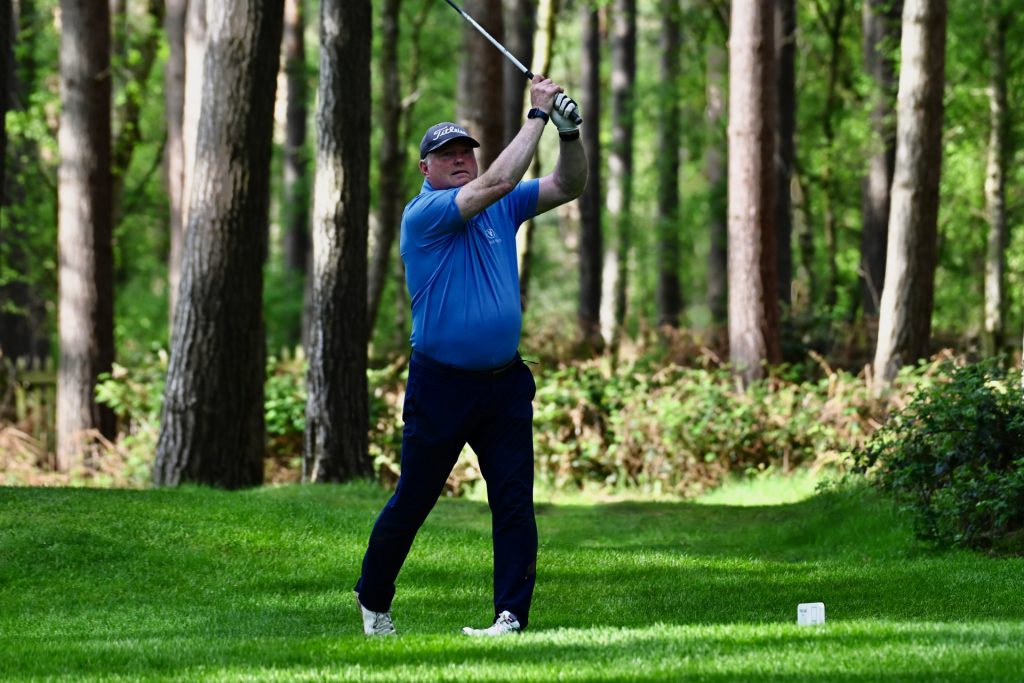
But life is tough, and it’s also a compromise, and whether his real Plan A or Plan B might have come to fruition, Ian will never know.
He has never been able to remember the car crash in 1991 when he was 24. Unlucky to be in it, lucky to survive it, is how Ian sums it up. The crash damaged his brain, his decision-making, memory, mental control and wellbeing, and it also damaged him physically. He feels all these effects even 30 years on.
Talk with Ian today and he is a realist with a dry, engaging sense of humour. He actually forged a decent career and has a contented family including three children. Some of his young ideals may have been lost in the accident, but he did gain a crucial outlook on life at an earlier age than most; that of knowing you have to make the most of every single day you have been given.
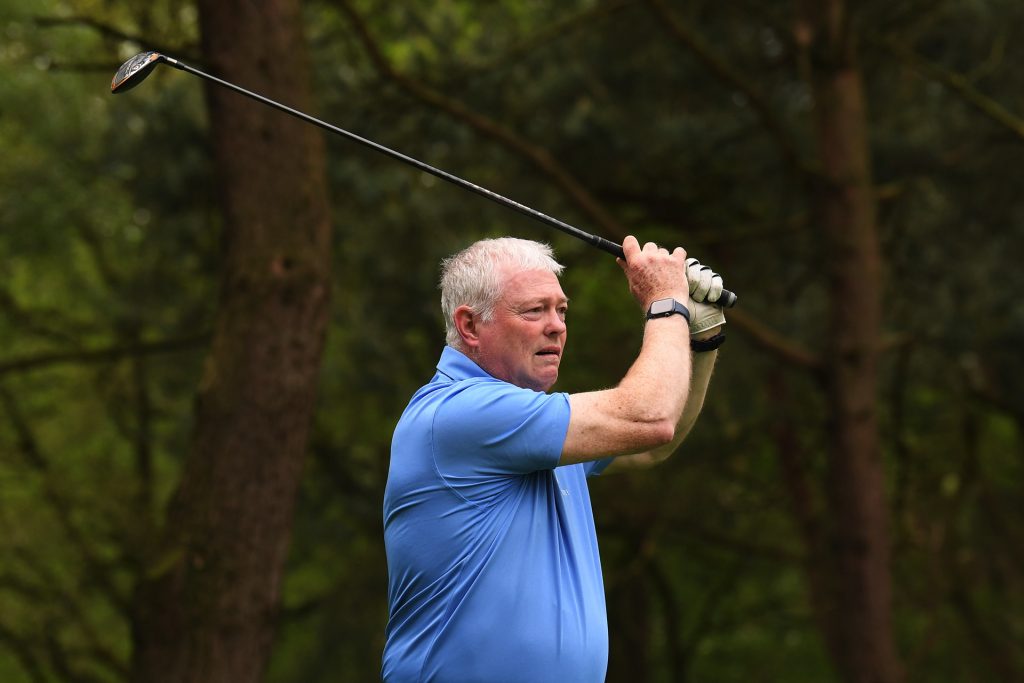
Ian says: “I’m a bit fatalistic but I’m very much aware, I mean, playing football Thursday night, came home, got up early in the morning, that was it. I’m very much aware it could all be gone tomorrow. So make as much of today as you can.”
With a wistful smile Ian tells us he misses running on to the pitch in the FA Cup qualifying rounds or playing in the Middlesex Cup Final (1988), helping his team to recover from 1-0 down to win 2-1 as he set up both goals. He has been told he watched George Best, Bobby Charlton & Co in the 1968 European Cup final, sitting on his Dad’s knee as a two-year-old, and has followed Manchester United ever since. His idol was the great midfielder Bryan Robson and, like his hero, Ian would run ‘box-to-box’ the whole match, a powerhouse of a player who could sprint the 100m in 11 seconds flat. His last goal for Egham Town (one of a pair he scored on that day) was a controlled lob over the keeper from the half-way line.
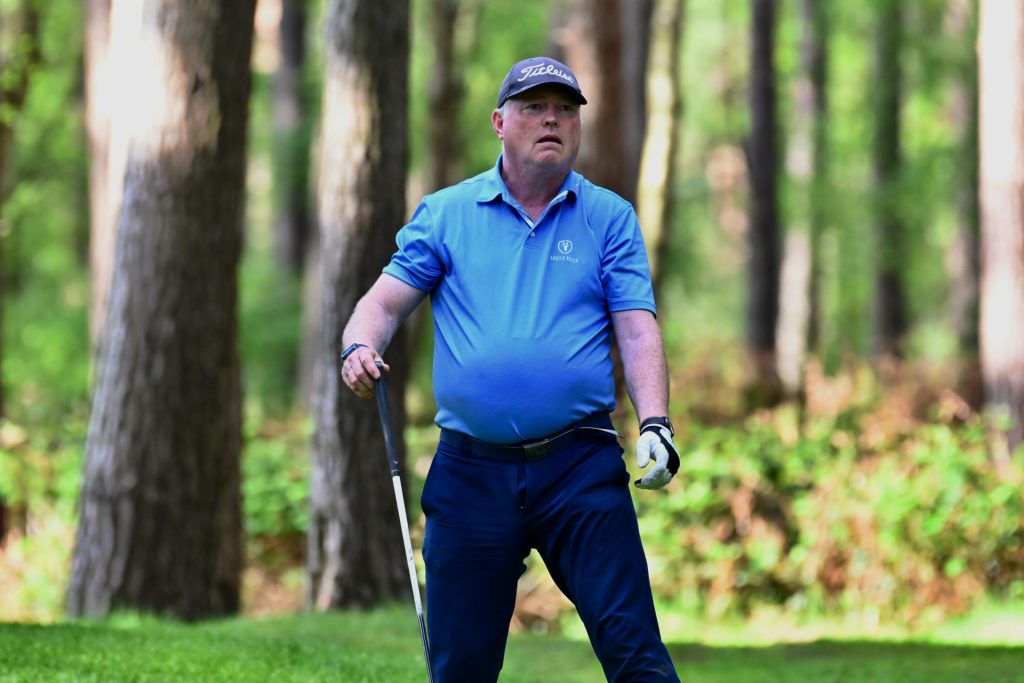
The thrill of holing a long putt may not be quite the same, but it can still delight him. When we spoke with him during the RSM Play-Off Series, an EDGA competition at Stratford-on-Avon Golf Club, England, in 2021, he revealed he still loves the competitive moments but also takes joy from the beauty around him in the fresh air and the companionship of his playing partners. Ian was pleased and relieved that day because he had just come back from being three down with four to play to beat Finland’s Petri Partanen on the last hole in his quarter final.
Ian says: “We had a really good time and that’s what it’s about. I mean, I want to compete, I want to win. But I also want to talk to people. I want to meet people, I want to find out what they think.
“And while there are organisations like EGDA about or other associations, or if there is an opportunity to do something, my advice to anybody would be to do it, because you could regret not trying.”
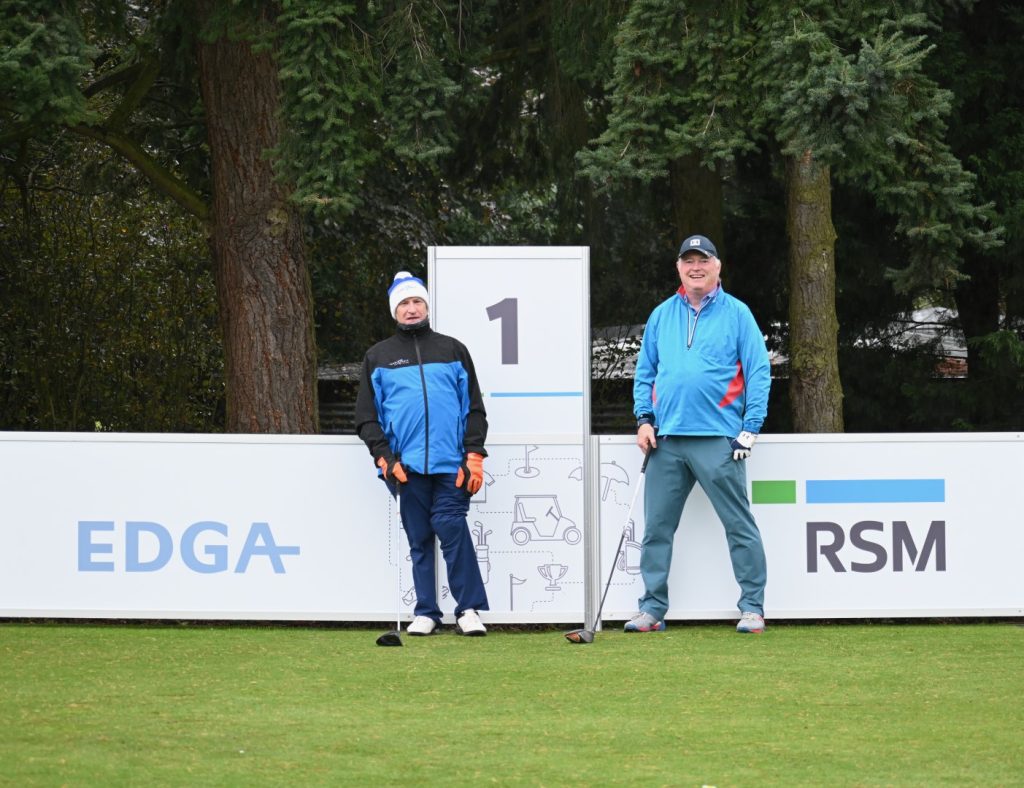
For Ian, damage to the part of the brain called the amygdala, meant the ability to empathise easily, to make connections with new people, were compromised, and would affect his career. Neurological damage put paid to his footballing dream despite considerable effort he made to get playing again. Golf has been, and still is, so tough to master – it is difficult for Ian to control muscular movement at key points of the shot – but he is quick to contend that playing the game has formed a key part of his rehabilitation process even 30 years on. Therefore, he has no hesitation in recommending golf to other people who have suffered injury, impairment or illness.
Golf has also helped his mental wellbeing, helped stop him retreating into himself and being anti-social.
“And you’re with people and you’re out there talking. I mean, I do that, I can be at home with the dog, and won’t see anyone. With some disabilities, mine being one of them, you become very insular, because of my interpersonal skills deficit, you don’t get to reach out as much. You’re happy being inside yourself rather than breaking out, and golf actually makes you talk to people and it’s a great way of doing it. You’re playing golf and you’re having conversations. I believe golf can be the best sport for disabled people.”
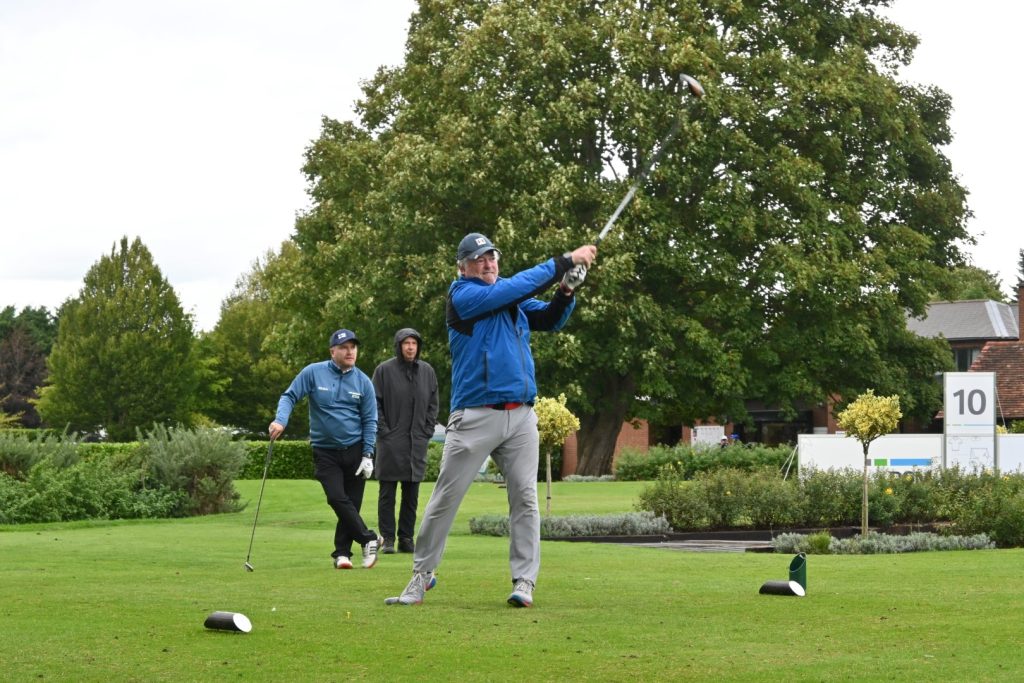
Apart from playing for Newcastle University, then the English and British Universities, Ian would play for the FA national team twice, and regularly for teams such as Uxbridge, Staines Town and Egham Town. Training, playing, training, playing… and then up early to jump into his Rover 216 to drive back up to Newcastle for a business meeting. He says he thought he was ‘superhuman’ in those days.
“I had my accident on August the 9th, 1991. It was pre-season. I had played on Tuesday, I played on the Thursday. I got up at four o’clock in the morning to drive to Newcastle on the Friday and got as far as Chesterfield. Nobody knows what happened after that, they can’t work out what went wrong.
“I was cut out of the car. Fourteen days completely comatose. I was in Chesterfield until the end of August. I then got transferred down to Hillingdon Hospital and was there until December. And then went in quite a lot of times from there, and effectively I went back to work in August the next year.
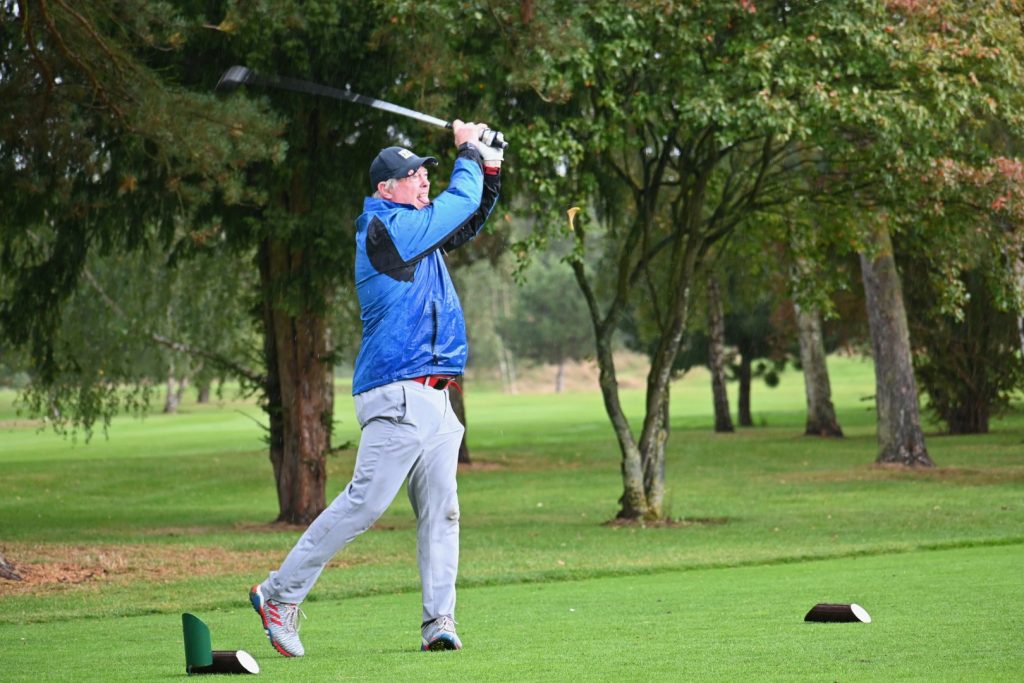
“In layman’s terms, the car stopped, I stopped, my skull stopped my brain, my brain hit the inside of the skull. It’s a traumatic brain injury. The brain hits the skull and then bleeds. And of course when the brain bleeds it shuts itself down.”
Ian adds: “I was unlucky it happened, but lucky to be here.”
In those tough weeks and months of recovery, no one helped Ian more than his parents.
“I think they are the key ones to thank. My parents have always encouraged me to do things. For example, I was in hospital and you go to physio during the day and then you’re back in your room in the evening. But after work every day my Dad came in, took me to the gym, sat me by the wall because I didn’t have the control of my body, and then he bounced a ball to me and I would bounce it back. And we just spent hours doing that.”
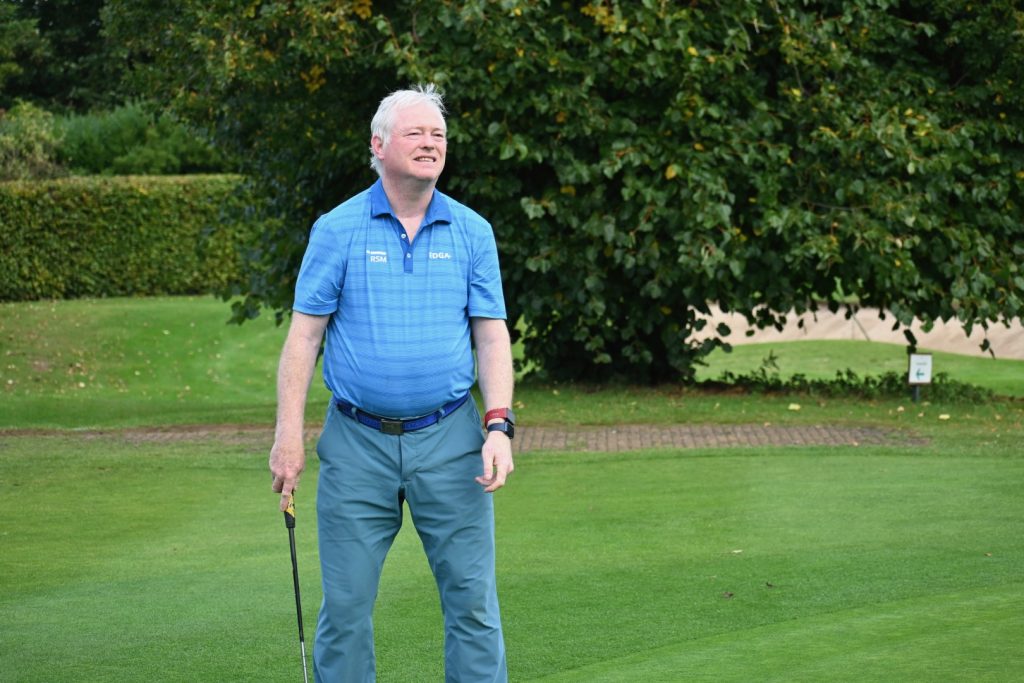
Considering the injuries, Ian and his family feel he achieved a great deal by building a successful career until he retired around 2008. He had always been bright at school but he cruised academically because of the football, and he admits he should have got a better grade in his university finals in Chemical Engineering. But shortly before the accident he had finally shown his true intellectual pedigree by securing an accountancy qualification which would propel him into a run of good jobs.
“Yes, I became a management accountant when I had my accident, and later worked for a company based in Abu Dhabi. The trouble was that as I got more senior, my disabilities mattered more. I struggle with interpersonal skills. I have no empathy, when I get angry, I get angry. And I have to control that.
“As an example, rather than get angry I can shut myself down, but when you get to senior levels in companies, if you shut yourself down when they’re making you angry, they just keep playing politics, so I worked out at that point I was going no further. I had done well, and luckily I came home and my wife picked up the baton. So she’s now in HR, human resources, a people director for a care group.”
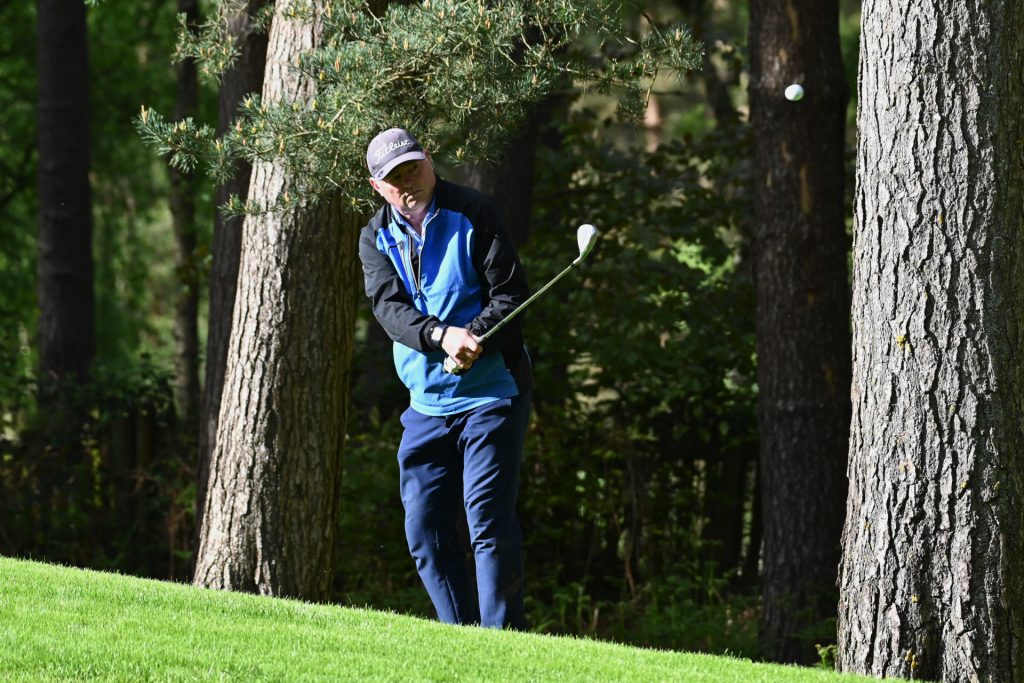
Ian adds: “But life hadn’t worked out the way I thought it was going to work, and it hasn’t worked out the way I thought it was going to work even after the accident. Because you think this will happen, that will happen, but the good thing is we’ve managed to find a way to get life to work for us.”
Ian, now aged 55, and his wife Kirstie, have recently moved to Reading, near London, and they have three kids, oldest Jessica, then Ben, and youngest Libby, who is also studying at Newcastle University, keeping her Dad happy.
Ian got into golf properly about 20 years ago.
“My journey into golf came from sadness, basically. Because I regret trying to get back to football after the accident.”
He wanted to compete in golf, still does, like he did at football, but he soon started to see other benefits in the game.
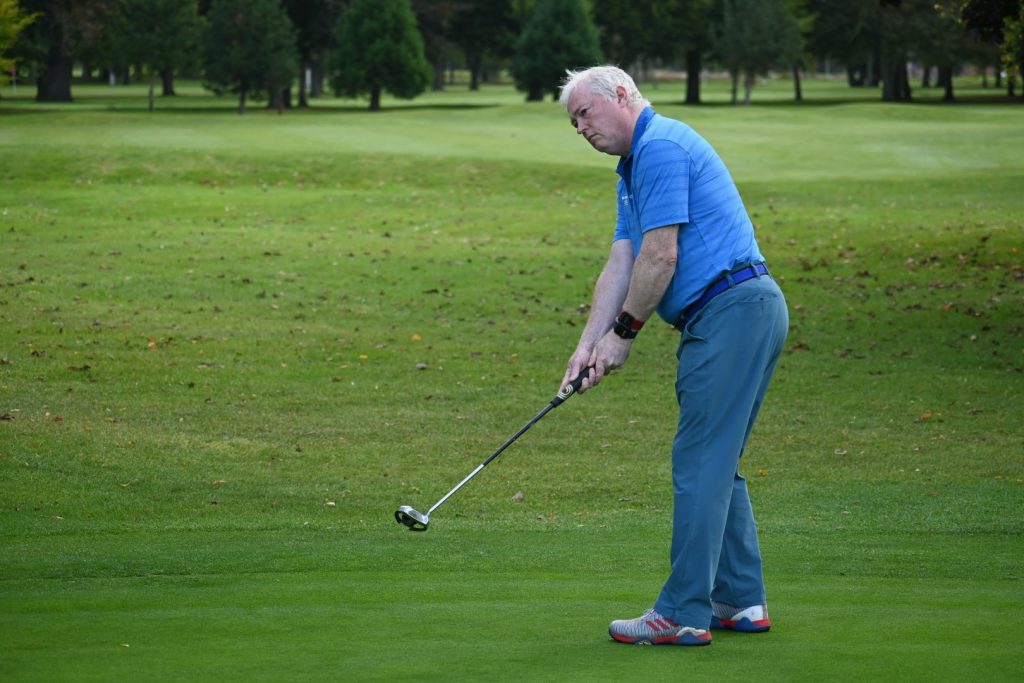
“The key thing I have to work with on the golf course is I have spasticity. It’s not obvious, it’s there and if I stand over a shot too long… I can’t control my body when it’s in the same position for a long time. So you just decide what you want to do and then it’s all like a fluid motion: you walk up to the ball and then hit it. It makes putting difficult [he laughs], but I think most of the disabled people I know have found a way to make disability work for them. We’ve all got issues, but it’s how can you actually manage the issues to do what you want to do?”
Ian says the role golf has played in his continuing rehabilitation is “fantastic”.
“Rehab hasn’t really stopped. I went back to work half of the week, then gradually more. And got back to a level, never quite got back to how I was, but I’m still learning how to get my body to work better now.
“People say visualisation is a great tool. It’s when you understand how to make something work. It’s because I’m spastic down my right side: left side brain injury, right side spasticity. And my right side is weaker than my left side, so I tend to carry it all the time. But then you find ways to make things happen that wouldn’t happen before.”
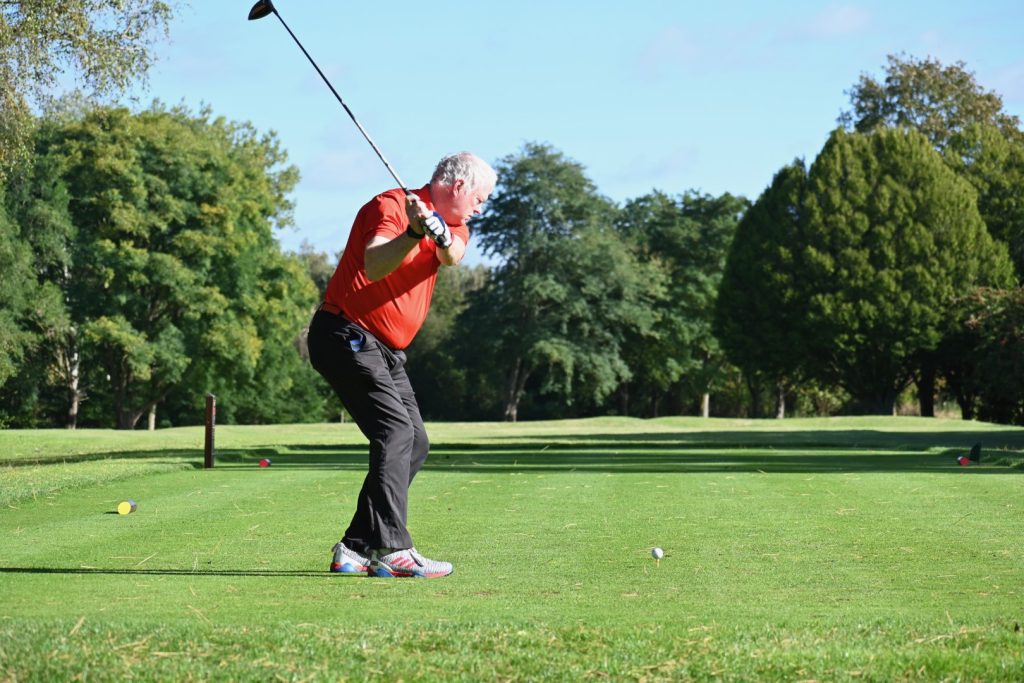
He is still learning. Until recently Ian’s brain injury wouldn’t allow him to hop on his right leg, but last year he started trying and working on his balance. It took time, but eventually he found a way, and now he can hop with the best of us.
Ian believes that the spirit which he showed in recovery, and before that on the football field, he now brings to golf, and he says he’d love to see more competitions and good training for people with a disability new to the sport, of all ages. He hopes to help in more events of this type at his own golf club, Castle Royle, near Reading.
“I think it would be lovely if there was an event once a month, or once a week, and I’m trying to actually organise that.
“It would be nice because the more you get people involved, the more they will feel involved. And they’ll see that they can do that, maybe they won’t like it, but they will try it.”
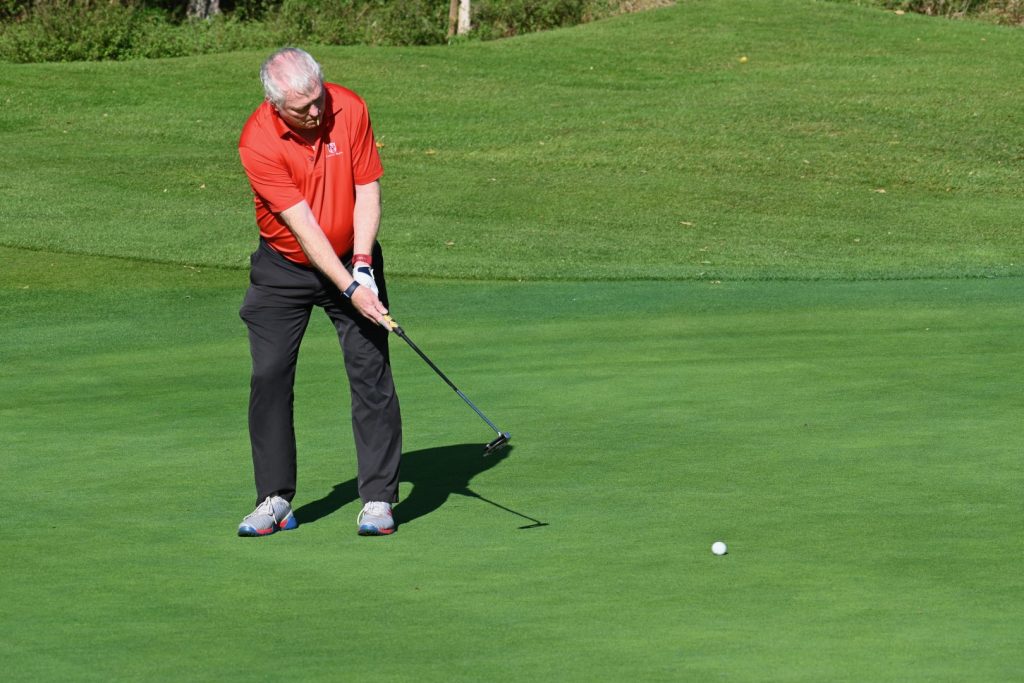
Ian adds: “Having made the choices I made, I think anyone that is in the same situation as me, should consider whether they can play golf or not, and if they want to play golf. Because it’s a way of meeting people and it’s a way of improving yourself. Much of the time you’re trying to find a way to negate or minimise the impact of your impairment. My coach Rob Watts at Castle Royle, he gave up trying to tell me what to do. He gives me pointers. I come to him and say, ‘What if I do this?’ And we work on doing that and see if it works. And my swing has evolved over two years, not because he said, ‘Do this, this and this.’ Because he doesn’t know, because nobody knows.”
Nobody knows because, as Ian says, the brain is an “amazing piece of kit”.
Meanwhile, Ian wants to play more competitions and sample some of golf’s greatest venues. In the recent past he has enjoyed Aldeburgh in Suffolk and Royal Liverpool and Royal Lytham & St Annes in the North West of England. This game has been an excellent therapy for him and he is keen that others can experience its benefits.
“So all I would say to people who have been impaired, just keep working. The more you do, the better you get. Even making small differences can be very good for your life ahead.”
Good advice from a man who is still working on his rehab 30 years on, still looking to enjoy every day because he knows whatever you plan, life gets in the way. And Ian Jones may no longer be flying up and down the pitch like Bryan Robson, scoring from the halfway line, but he remains a very tough competitor. When you are three up with four holes to play with Ian Jones, it’s all just getting started.
Contact EDGA
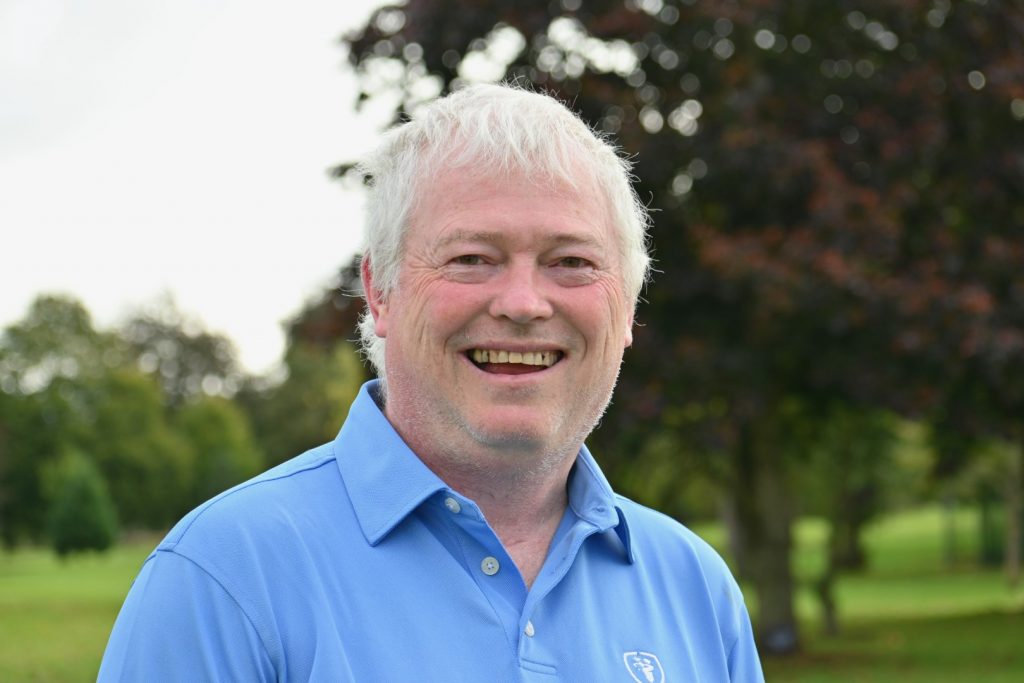
NB: When using any EDGA media, please comply with our copyright conditions


